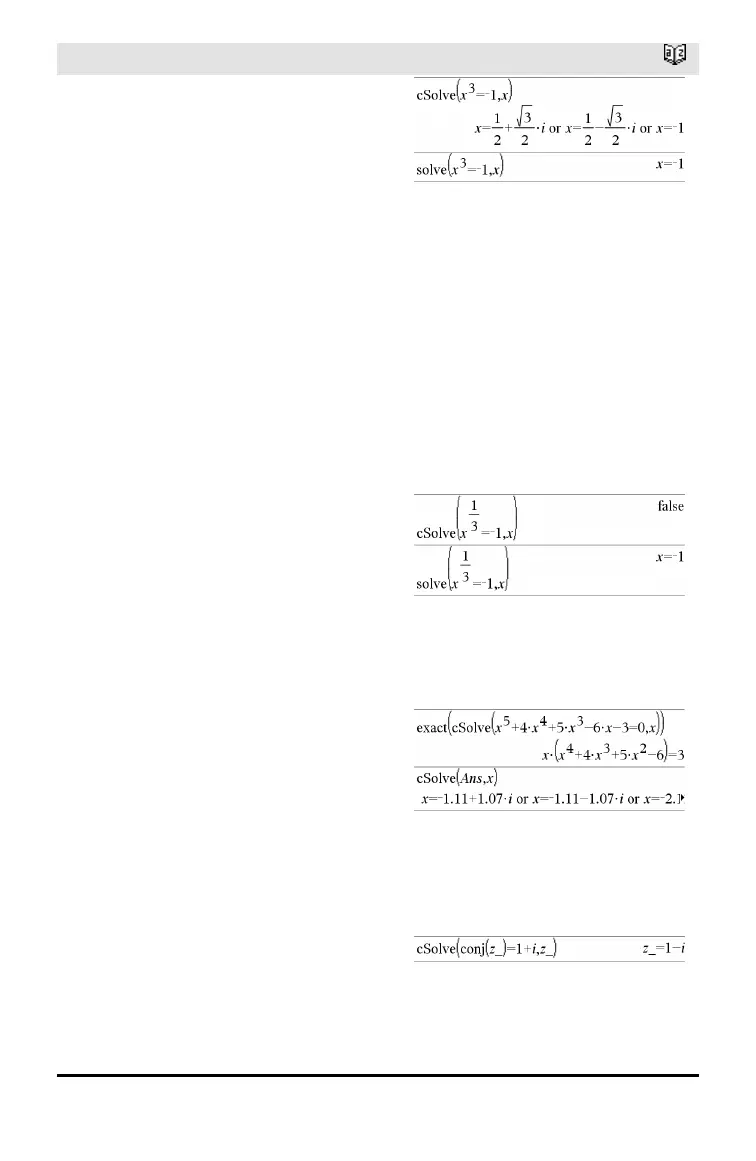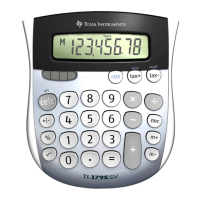42 Alphabetical Listing
cSolve()
Catalog >
cSolve(Equation, Var) ⇒ Boolean
expression
cSolve(Equation, Var=Guess) ⇒ Boolean
expression
cSolve(Inequality, Var) ⇒ Boolean
expression
Returns candidate complex solutions of an
equation or inequality for Var. The goal is
to produce candidates for all real and non-
real solutions. Even if Equation is real,
cSolve() allows non-real results in Real
result Complex Format.
Although all undefined variables that do not
end with an underscore (_) are processed
as if they were real, cSolve() can solve
polynomial equations for complex solutions.
cSolve() temporarily sets the domain to
complex during the solution even if the
current domain is real. In the complex
domain, fractional powers having odd
denominators use the principal rather than
the real branch. Consequently, solutions
from solve() to equations involving such
fractional powers are not necessarily a
subset of those from cSolve().
cSolve() starts with exact symbolic
methods. cSolve() also uses iterative
approximate complex polynomial factoring,
if necessary.
Note: See also cZeros(), solve(), and zeros().
Note: If Equation is non-polynomial with
functions such as abs(), angle(), conj(), real
(), or imag(), you should place an
underscore (press /_) at the end of
Var. By default, a variable is treated as a
real value.
In Display Digits mode of Fix 2:
To see the entire result, press £ and then
use ¡and¢ to move the cursor.
If you use var_ , the variable is treated as
complex.

